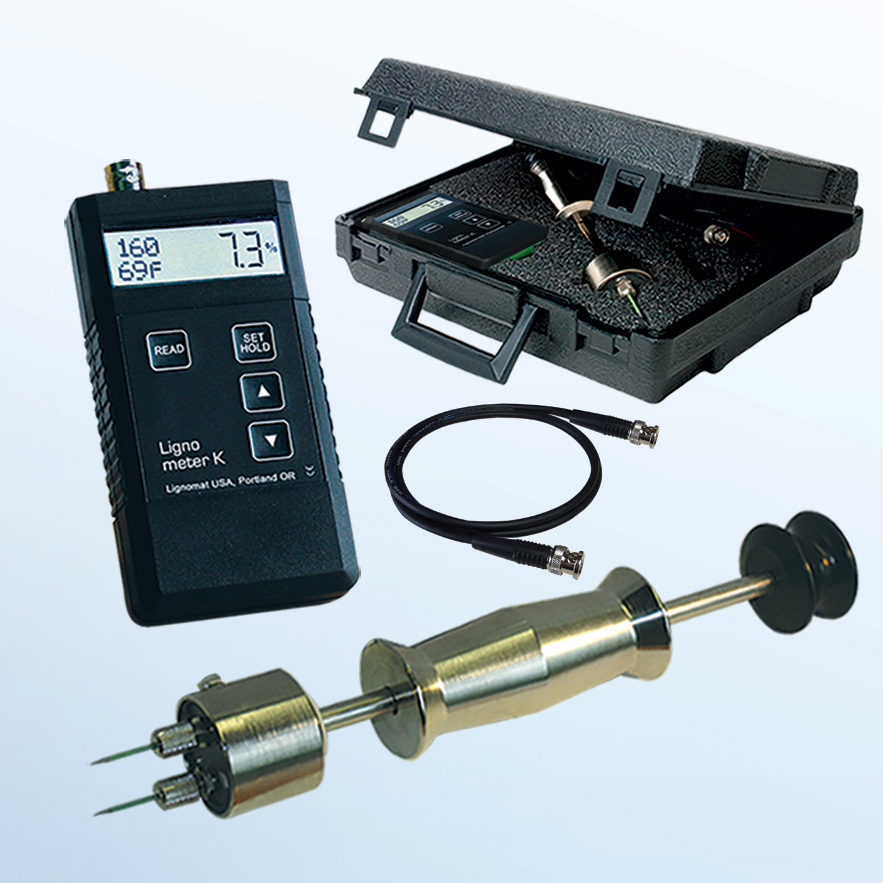Recognizing the Various Kinds Of Moisture Meters and Their Applications
Recognizing the Various Kinds Of Moisture Meters and Their Applications
Blog Article
The Ultimate Overview to Dampness Meters: A Comprehensive Summary and Just How They Can Save You Money
In the realm of building maintenance, building, and different markets, the significance of precisely determining moisture degrees can not be overstated. Moisture meters act as important tools in detecting and keeping an eye on moisture web content in materials, assisting in stopping pricey problems and guaranteeing the high quality of items. Recognizing the nuances of various kinds of moisture meters, their applications, and the possible cost-saving benefits they provide can be a game-changer for organizations and experts alike. Discovering how these tools can not only streamline processes but additionally contribute to monetary savings is a trip worth beginning on.
Sorts Of Dampness Meters
One common kind is the pin-type wetness meter, which gauges the electrical resistance between two pins placed into a material. Pinless wetness meters, on the various other hand, usage electro-magnetic sensor plates to check a larger location without causing damages to the material's surface area.

Infrared moisture meters measure the thermal residential properties of a material to establish its moisture content non-invasively, making them helpful for applications where pin or pinless meters might not be appropriate. Understanding the different types of dampness meters available can assist industries choose the most suitable device for their certain moisture measurement demands.

Benefits of Making Use Of Wetness Meters
Wetness meters supply indispensable benefits in accurately keeping an eye on and analyzing moisture levels in varied materials and atmospheres (Moisture Meter). Among the primary benefits of utilizing wetness meters is the avoidance of potential damages brought on by excess moisture. By discovering and dealing with high wetness degrees early on, wetness meters help to protect against mold and mildew development, rot, and architectural damage in structures, conserving both money and time on repair work. In addition, moisture meters help in making sure the high quality of materials throughout building and construction or production procedures. By accurately gauging dampness web content, these devices aid keep the honesty of timber, drywall, concrete, and various other products, lowering the threat of failings or defects.
In addition, using moisture meters can lead to increased power efficiency. In farming settings, dampness meters play a crucial role in maximizing plant yields by allowing farmers to keep an eye on dirt wetness levels and make notified watering choices.
Just How to Choose the Right Moisture Meter
When selecting a wetness meter, it's crucial to ensure that the meter is suitable for the particular product you will be testing. Different materials have differing electric properties that can affect wetness readings, so picking a meter made for your product is vital for accurate results. By thoroughly assessing these elements, you can pick a wetness meter that fulfills your needs and gives precise dampness dimensions for your jobs.
Correct Techniques for Wetness Meter Use

Price Cost Savings Through Wetness Meter Applications
How can the strategic usage of dampness meters cause considerable cost financial savings throughout various markets? Dampness meters play an essential role in expense financial savings by protecting against prospective damages and making certain quality assurance in various industries. In the agriculture sector, dampness meters aid in identifying the optimum time for collecting plants, stopping excess or over-drying wetness that can affect the final item's top quality. This precise surveillance assists farmers prevent unnecessary losses and optimize their yield.
In a similar way, in building, wetness meters help prevent pricey damages by discovering dampness degrees in structure products, such as timber or concrete, which can bring about architectural concerns if not addressed without delay. By determining trouble locations early, service providers can take restorative measures this page to prevent comprehensive repair services or substitutes, inevitably saving money and time.
Furthermore, in the food handling industry, moisture meters are necessary for checking product top quality and ensuring conformity with safety and security guidelines. By accurately measuring moisture content in foodstuff, producers can protect against putridity, maintain quality, and lower waste, resulting in significant cost financial savings. Overall, the critical application of wetness meters is a beneficial financial investment that can lead to substantial cost decreases and improved performance across various sectors.
Verdict
To conclude, wetness meters are useful tools for finding and gauging moisture levels in different products. By using the appropriate moisture meter and complying with proper techniques, individuals can successfully avoid expensive damages triggered by excess dampness. Purchasing a high quality dampness meter can cause considerable cost financial savings over time by recognizing potential problems beforehand and enabling punctual removal. Eventually, dampness meters are vital tools for maintaining the integrity and longevity of structures and products.
Dampness meters serve as essential devices in discovering and monitoring moisture material in products, assisting in preventing costly problems and making sure the quality of items. Infrared dampness meters gauge the thermal homes of a material to identify its wetness content non-invasively, making them useful for applications where pin or pinless meters might not be ideal.Dampness meters provide important advantages in precisely evaluating and checking moisture degrees in varied materials and environments. In agricultural settings, dampness meters play an important duty in optimizing plant yields by enabling farmers to keep track of soil dampness degrees and make informed watering choices.In verdict, wetness meters are important tools for spotting and gauging moisture degrees in various products.
Report this page